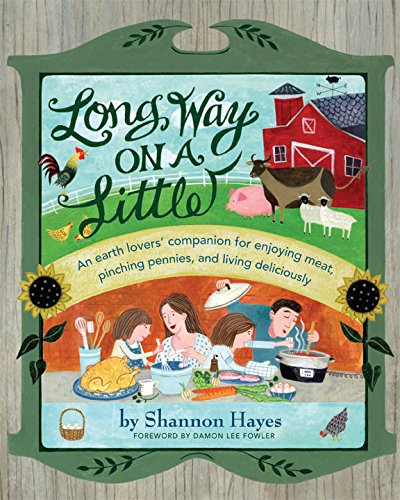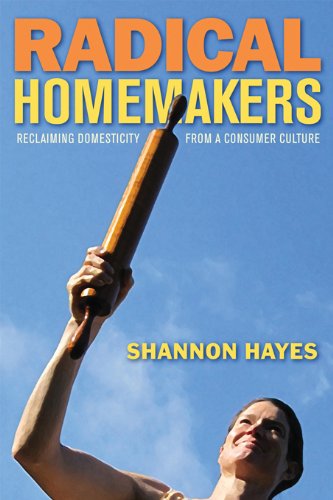Bullfrogs And Graveyards: On A Sense Of Belonging
Jug-a-rum, jug-a-rum, jug-a-rum.
I don’t think much of the Westchesters who own the vacation house next door. But I think a lot about their pond. My bedroom windows are up against the state forest, and as I fall to sleep at night, they channel in the songs of the thrushes. The clerestories above me face south, and capture the bullfrog chorus from the Westchester’s pond. Together the bullfrogs and thrushes create the solstice symphony that sends me into blissful sleep.
 The Westchesters were up last weekend. We worked all day Saturday, and didn’t see much of them, save for listening to their ATVs run up and down the dirt roads that run through the State Land. We thought it was strange that the bullfrogs were quiet that night. On Sunday, Ula figured out why.
The Westchesters were up last weekend. We worked all day Saturday, and didn’t see much of them, save for listening to their ATVs run up and down the dirt roads that run through the State Land. We thought it was strange that the bullfrogs were quiet that night. On Sunday, Ula figured out why.
“They’re dragging something out into the water,” she came running up the road from her walk to tell me. She dove into the house, preparing for what she expected would come next. As the door shut, the explosion from next door rattled our timbers. Dusky and Nikky ran to hide under the beds. I went to the window and saw smoke rising from the pond. Apparently they were firing at tannerites, legal explosive targets. A few minutes later, the automatic rifle fire ensued.
For an hour, the house rattled and shook. Bob’s jaw clenched tight as he sat on the porch with Ula, trying to help her with a buoyancy experiment without losing his temper. I laid down on the bed and tried to snuggle the dogs through the onslaught. Saoirse stormed and paced, her fury shaking our rafters more than the gun fire.
“You need to do something!” She screamed at me. “They can’t do this!”
“The law says they can,” I kept my voice soft, conscious of alarming the dogs, cautious not to raise the stress level in the house to the point of Bob’s anger forcing an unpleasant confrontation with the neighbors.
As long as the Westchesters discharge their weapons at least 500 feet from my home, there is no authority that will interfere. The pond is 500 feet.
“You have to go over there and stop them!”
I kept my face placid, but inwardly I winced. Because in that moment, Saoirse was discovering that I’m not the superhero she thought I was.
I would not confront the neighbors. “We don’t want conflict with them,” I tried to explain. “Because then, whenever we come home and they’re up, this will be a war zone, and not a place of peace.”
“They don’t have the right to do this!”
“They’ll get bored soon.” I walked away to the kitchen and began putting lunch together. She stormed up to her room. The explosions alternated between tannerites, shot guns, automatic weapons, and then, I think, a few fireworks thrown in for good measure. By the time lunch was on the table, however, our mountaintop had fallen silent again. Yup. They got bored.
But the bullfrogs didn’t sing that night.
A few days later, we put packs on our backs and trek off into the state forest behind our house. We go down to Mallet pond and pitch our tents, celebrating the start of summer beside the water’s edge for a few days. I take joy that those bullfrogs are still going strong.
 On the day of the solstice, we take off on a trek with an unknown destination. We follow the dirt roads and trails through the state land until we get up to the holding ponds above Mallet. There, we see that the Westchesters must have had a busy Saturday. On Friday, Bob and I had hiked to these ponds, and they were serene as ever. But on the solstice, we see the damage from their ATVs. They’ve broken the bank of the larger pond, flooded the trail, performed donuts in the mud, created small flooding rivers. We follow the ruts further into the forest, and any place the winter storms laid down a tree across the path, they rammed their vehicles into the woods and over the stone walls built by the settlers here in the 1840s, grinding them down into the forest floor.
On the day of the solstice, we take off on a trek with an unknown destination. We follow the dirt roads and trails through the state land until we get up to the holding ponds above Mallet. There, we see that the Westchesters must have had a busy Saturday. On Friday, Bob and I had hiked to these ponds, and they were serene as ever. But on the solstice, we see the damage from their ATVs. They’ve broken the bank of the larger pond, flooded the trail, performed donuts in the mud, created small flooding rivers. We follow the ruts further into the forest, and any place the winter storms laid down a tree across the path, they rammed their vehicles into the woods and over the stone walls built by the settlers here in the 1840s, grinding them down into the forest floor.
Our solstice celebration is turning into a mourning for our public land. Saoirse’s fourteen-year-old sense of outrage and justice rings through the woods. “We have to catch them at it! We have to take them to court!”
And, once again, I have no words, no plans, no ideas to salve this teenager’s outrage. Bob engages both girls in reading the forested landscape around them. He momentarily distracts Saoirse from her fire and fury by urging her to decode history from the clues around her.
And I go into myself, marveling at my sense of powerlessness over this problem; agog that so few people can do so much damage in so little time. I wallow in Bob’s and my impotence. We teach our daughters to stand up for what they believe. We urge them to live their lives based on their most deeply-held values. And then, we stay quiet while the neighbors trash our state forest. But we cannot win this battle.
We’ve tried seeking justice in the past. It doesn’t work. DEC officers cannot be in all places at once; we can’t predict when people will set out to destroy our lands; and the officers cannot convict based on our observations alone. Instead, I try to get the girls to understand the despair and lack of imagination that fuels this destructive behavior. “No one taught them how to be in the woods,” I often say. “They don’t know how to simply enjoy it.” “They’re too restless inside to accept the quiet.” “They just know how to buy whatever’s sold to them; and then smash and destroy.” But on this solstice, my oft-repeated words ring hollow to my oldest daughter.
Saoirse wants to wish upon them injury; something to stop them from their actions. I remind her of the rule of three: whatever you put out in the universe comes back to you three times. Instead, I urge her to wish for them inner peace and quiet joys.
We follow the trail deeper, to a point where the Westchesters must have grown bored yet again, as the destruction comes to a stop. We stay on it until it brings us up to another dirt road, and that leads us past a swamp, rich in loquacious bullfrogs to counsel my soul. Just beyond the swamp is the old grown-over graveyard that my parents used to bring me to as a child. We choose to go in and visit our quieter neighbors; to rest on their stone walls for water and a snack.
As we do, Saoirse begins to wander among the tall weeds, pushing them aside to read the names carved into the rocks. Hamm. Hadsell. Becker. Her eyes light up.
“Mom! We know these names!”
The dates on the stones are all from the 1800s, but in my own life, I’ve known the family members of many of these people.
 I remember wandering these back roads and hillsides as a teenager with Sanford, my surrogate grandfather and farming neighbor up the road, who’d stumble into these hidden places with me while we were out picking berries. He would use his cane to thwak away at the overgrowth, taking just a few minutes to restore a few graves and share a few stories about the deceased before pushing on to find more fruit for his pail.
I remember wandering these back roads and hillsides as a teenager with Sanford, my surrogate grandfather and farming neighbor up the road, who’d stumble into these hidden places with me while we were out picking berries. He would use his cane to thwak away at the overgrowth, taking just a few minutes to restore a few graves and share a few stories about the deceased before pushing on to find more fruit for his pail.
I amble down the path and greet these old friends. And as I look carefully at each stone, I realize that while we can’t win this battle, we are winning the war. The fact that I am standing here with my family on the solstice, loving these stones and this land, investing the entirety of my life into this community is evidence of that. Sanford’s grandfather was one of the original settlers of this town. He walked this place with me until I loved it so much, I could make my life nowhere else. And Bob and I walk this place with our daughters, instilling the same passion.
Saoirse is entitled to her anger. At fourteen, it is a manifestation of her love for our home.
“Saoirse!” I grab her arm as she catches up to me. “Do you see these stones? You’ll never find a Westchester here.” She gives me a sideways glance. I stumble forward, trying to make it all make sense for her. “People like the Westchesters come and go. But all these people stayed, and so many of their children stayed, because they all love this place. That’s how we stop it. We love it. Look how many more people are here who have always loved this place compared to the people who trash it.”
I don’t think she’s listening. I leave her with her thoughts. But in my mind, I can tally how many Westchesters have come and gone during the forty-plus years I’ve called this town home. But so many of the names carved into the stones have stuck around, working day in and day out, always making things a little bit better, always keeping the natural world sacred. And slowly, this love of place becomes our culture. And that culture attracts newcomers who share that love. The destructive newcomers eventually burn themselves out. But the ones who fall in love stick around and make it home. And when people fall in love and around, time is on our side.
Saoirse links arms with me as we leave the graveyard and head back to the forested path. “I’m so glad we’re here,” her voice has softened, and the smile across her face is broad and true. She is suddenly loving her day. We find our way back to the woods, then hook around to come up the other side of Mallet pond. There, we stumble on an extensive trail of fishing line choking the passage and the saplings. Quietly, she works with Ula, Bob and me as we trace it out and remove it. We find the discarded bottles, and pack them away in our pack. The graveyard has melted everyone’s anger, replacing it with love and an eagerness to express it through cleaning and tending.
We return from our three days in the wilderness and I am happy for a hot shower and a soft bed. I’m also happy to lie underneath my windows, listening to the thrushes. And then, that night, just before I drift off to sleep, I hear it:
Jug-a-rum, jug-a-rum, jug-a-rum.
The bullfrogs have resumed singing in the Westchester’s pond.
Listen to Shannon Hayes talk about Reclaiming Our Sustainable Future in the Kindred interview below:
Featured Photo Shutterstock/Junker Photography

